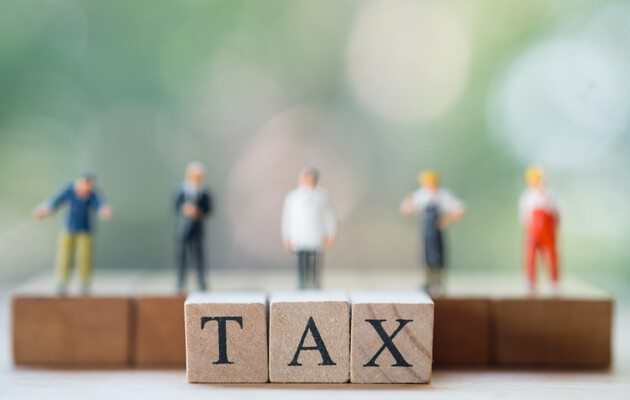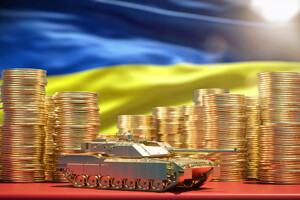New Taxes: Whose Wallet Will Support the State Most?
In general, Ukraine does not need foreign grants or loans. The reason is that internal reserves, fabulous sums in the amount of billions of hryvnias, dollars and euros, are here, inside the country. But this is assuming that there is no system of economic relations under which the tax burden on billionaires is sometimes less than on firefighters or teachers.
Two worlds in one country
The minimum pension in today’s Ukraine is about $60. The average is slightly higher, but we know that this is mainly due to special pensions for the elite. The average salary is in the range of $500. And this is only at the current hryvnia exchange rate, which is rapidly devaluing.
At the same time, the minimum daily cost of a standard room in Uzhhorod city (the west of Ukraine) in a hotel with a very controversial level of comfort and a rather dilapidated territory as of March this year was UAH 3,100. This means that an average salary earner can stay in a regular hotel room for just over six days if they eat their own food.
The same establishment also has a suite “for the elite” at UAH 8,500 per night. Of course, it doesn’t include meals either. So what are the prices for European salaries? It turns out that at the peak of the summer season, a room for two adults in a four-star hotel in one of the most fashionable resorts in Bulgaria (first line from the sea, an incredible private park, three free swimming pools filled with healing thermal underground springs, all-inclusive meals with unlimited local wines, etc.) cost UAH 4,000 per night. The hotel services there are used mainly by Germans...
This is just one of a myriad of examples showing that Ukraine’s economic system has created specific classes of consumers of the national product. A class of poor citizens, a class of rich ultimate beneficiaries of the system, and a thin middle-class layer in between.
This system existed in peacetime. But today, its preservation threatens the inevitable collapse of the country’s economy. However, there are ways out. Moreover, the civilized world is actively using them.
Does the thin man have to lose weight?
In 2024, Ukraine faced an acute need for funds to finance the budget due to the exorbitant war-related current expenditures. And given the (generally predictable) vicissitudes with external borrowing and grants, it became necessary to look for internal sources of budget replenishment.
The question arises: whose wallet will lose the most weight if the state is to survive?
The famous National Revenue Strategy does not exclude in principle “specific discussions on the principles of taxation of excess corporate profits, including recommendations on extraordinary circumstances when such taxes may be applied.” At the same time, its more specific part on the issue of tax increases clearly hints at the remnants of Ukraine’s middle class.
It is thus easy to understand that, in fact, the financial balancing of the state budget this year and in the coming years will be achieved by increasing the fiscal burden mainly on middle class representatives and ordinary citizens.
This time, too, the government is targeting those who are already struggling to make ends meet. According to Deloitte’s Consumer Sentiment Report, “Ukrainians spend the most on food and mandatory payments among residents of other countries surveyed. This figure reaches 66%, which is more than twice the global average. Ukraine is the only country in the survey where spending on this category exceeds 50%.”
Ukrainians spend significantly less on goods and services that are not necessary for basic living. When it comes to leisure (including restaurants/cafes), recreation and tourism, Ukrainians spend 2% of their budget on this category, while residents of Germany spend 17%, Poland — 15%, the United States — 19%, Canada — 15%, the Republic of South Africa — 17%. As for electronics, household appliances and household goods, Ukrainians spend 2% of their budget on this category, compared to 10% in Germany, 12% in Poland and the US, 10% in Canada and 14% in the Republic of South Africa.
It would seem, where can things go downhill from here? After all, the consequences of the increased fiscal and tariff burden on the population in general and the middle class in particular will inevitably make themselves felt across the entire economy through the multiplier effect.
American recipe
And here’s what American tax justice looks like, for example. You can find its essence on the White House website. It is about making the rich pay taxes. In particular, it provides for:
- cutting taxes for working families and making large corporations and wealthy individuals pay their fair share;
- raising tax rates for large corporations;
- reducing incentives to register profits in low-tax jurisdictions;
- billionaires (with fortunes over $100 million) must pay at least 25% of their income in taxes.
- a marginal tax rate of up to 39.6 percent for single individuals earning more than $400,000 per year and for married couples earning more than $450,000 per year. The marginal tax rate will increase to 39.6 percent.
It is worth noting that only 2% of US citizens have incomes of more than $400,000 per year, and only 0.4% of households earn more than $1 million per year. That is, it is the most wealthy and corporations that the US plans to put the entire fiscal burden on.
In Ukraine, for more than 30 years, the situation has been exactly the opposite. Of course, Ukraine is nowhere near the United States, an ordinary nurse with a gross income of about $100,000 a year is not commonplace here, Ukraine does not hold the world’s leading reserve currency, and its GDP is not $27 trillion. But you must admit that a change in approach is inevitable.
Corporate tax
Ukraine’s 18% corporate tax rate is higher than in several European countries (Hungary, Cyprus, Bulgaria), but lower than in the US (21%, with plans to increase it sharply), the European average (21.7%) or the global average (23.9%).
However, even with such a fairly comfortable tax burden, some large and medium-sized businesses in our country try to avoid or reduce it by all means. As a result, corporate taxes in Ukraine are among the lowest in Europe, while labour is the cheapest.
So why reinvent the wheel instead of taking advantage of the global trend of increasing the fiscal burden on corporations and billionaires? Of course, all the pitfalls — the relevant anti-offshore measures — should be considered in advance.
There are different ways of how countries increase the fiscal burden on big.
- The United States will simply raise the rate.
- The UK fixes the corporate rate at a higher rate only for those with high profits.
- Türkiye has temporarily increased its standard 20% tax rate to 25% in 2021 and to 23% in 2022.
- Latvia provides corporate tax relief of up to zero to international companies if their profits are invested in business and jobs. However, anything distributed or paid as dividends is subject to maximum taxation.
- A number of countries occasionally tax “windfall gain.”
In Ukraine, unlike other countries, excess profits from dubious privatization and non-market use of natural resources, as well as from hothouse and non-competitive conditions for business development for decades (for example, under the roof of MPs or law enforcement agencies) were not taken into account and not additionally taxed.
And now such businesses pay moderate income taxes along with other businesses.
The only case of fair taxation of excess profits and the application of a supertax was the withdrawal of 50% of income from banking market players in 2023.
It is hardly surprising that under such conditions, a whole segment of the residential and commercial real estate market has emerged in Ukraine, with properties worth hundreds or even millions of euros, in addition to a market of expensive luxury cars.
Thus, compared to most civilized countries, Ukraine is a tax “paradise” for big business fish and a heavy fiscal burden for “small business fry.”
Read this article in Ukrainian and russian.
Please select it with the mouse and press Ctrl+Enter or Submit a bug
















 Login with Google
Login with Google